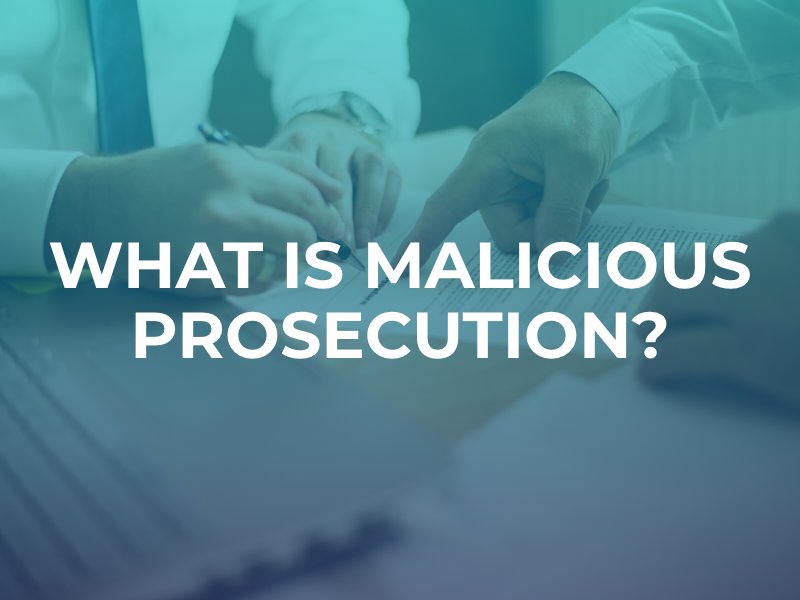What Is Malicious Prosecution?
Malicious prosecution is the process in which the state authorities bring criminal charges against an individual. In order for a prosecution to proceed, probable cause (a reason to believe the individual committed a crime) must be present. Malicious prosecution occurs when the prosecution against an individual is made without probable cause, or the prosecution has purposes other than bringing a person to justice. Being charged with a crime in Georgia can be an incredibly scary experience, and this is particularly true when a person is maliciously prosecuted. Victims of malicious prosecution may be able to recover compensation for what happened to them through a lawsuit.

Asserting malicious prosecution in Georgia
Federal law and Georgia law both prohibit malicious prosecution, but that does not mean this type of behavior does not occur. In order to assert malicious prosecution, you or your attorney are going to need to show the claim against you lacked probable cause. Probable cause is generally associated with the police having a reasonable basis for determining a crime had been committed. Before any search or seizure or arrest can be carried out, probable cause is required.
In order to file a malicious prosecution claim in civil court, a person must first win the criminal case against them for the charge they are asserting they were maliciously prosecuted for. This can be a complicated process. In other words, even if a person knows they are being maliciously prosecuted and that the charges against them are not true, they must first prove that in their criminal case before they can start a new civil case claiming malicious prosecution. If a person loses their criminal case, or enters a plea of guilty or nolo contendere, they may not be able to claim malicious prosecution.
How can you prove malicious prosecution in Georgia?
Any person who asserts that they were maliciously prosecuted is claiming that the accusation against them was baseless and brought against them for the purposes of harassment. Plaintiffs in a malicious prosecution case (the person who was maliciously prosecuted) will need to prove various elements in order for their claim to be successful:
- That the people who initiated the prosecution acted in bad faith or for purposes other than securing justice against an alleged offender.
- That the criminal proceeding led to a ruling in the plaintiff’s favor.
- That there was no probable cause that would have led to the proceeding in the first place.
- That the initiator of the proceeding acted with malice towards the plaintiff.
Victims of malicious prosecution face an uphill battle, even if they win the criminal case against them. Proving that government authorities or the police did not have probable cause in the first place can be difficult. A victim of malicious prosecution and their attorney need to show that the prosecutors or law enforcement authorities operated outside the scope of their position to engage in unreasonable and willful conduct.
What are the damages for malicious prosecution?
If you or somebody you love has been the victim of malicious prosecution, there may be various types of compensation available for your claim. This can include the following:
- Attorney’s fees for the plaintiff
- Court filing fees
- Lost income for time in prison or otherwise being unable to work
- Various out-of-pocket expenses caused by the malicious prosecution
- Possible emotional distress damages
- Loss of future earning potential
Any person who believes they are the victim of malicious prosecution needs to act quickly to protect their rights. The first step is winning their criminal case. Then they can seek justice for what happened. You can always contact our Atlanta personal injury attorneys today at (404) 321-1700.